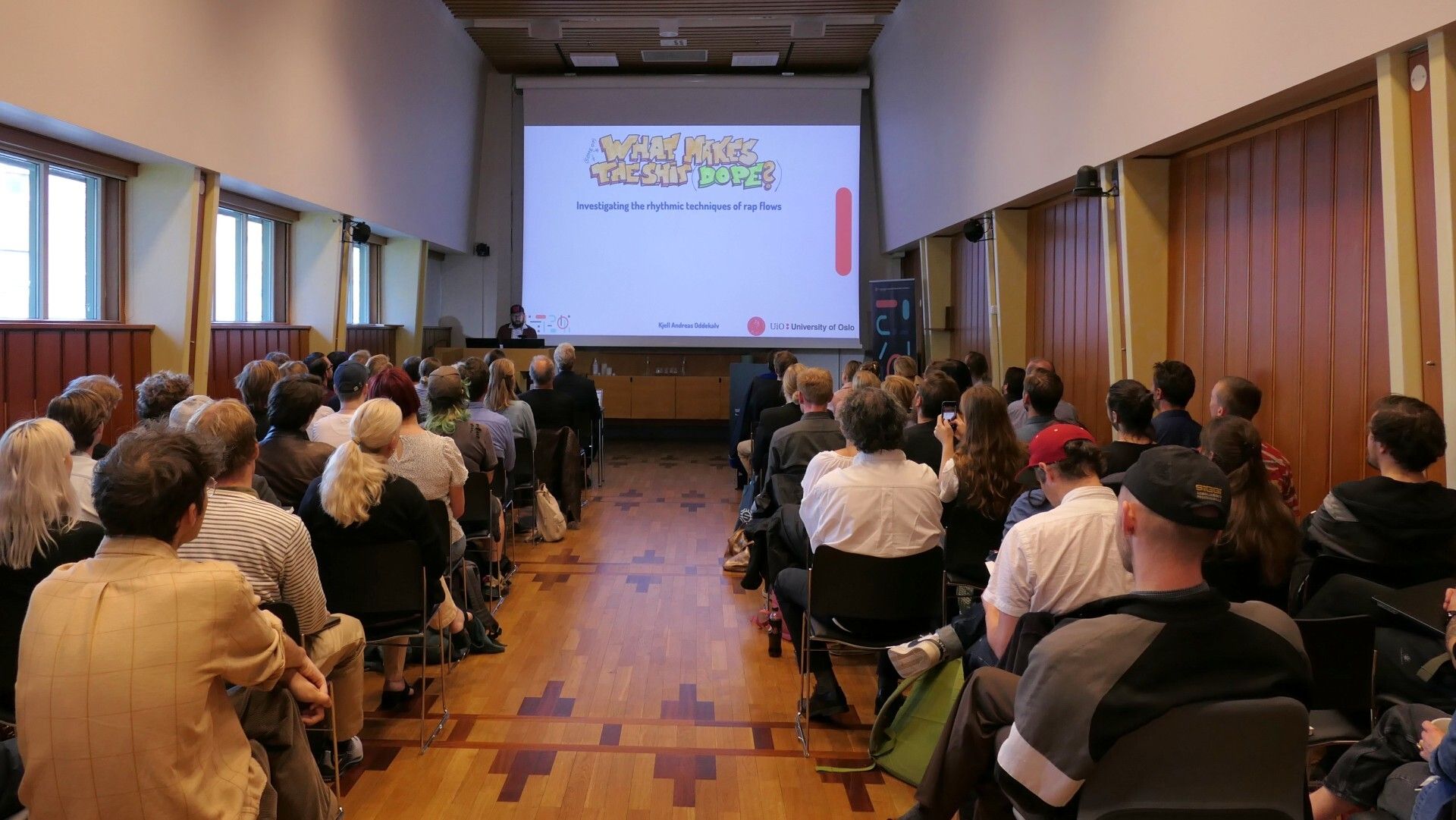Yesterday, I gave some PhD dissertation advice. Today, I will present some tips for PhD candidates ready for public defense.
In Norway, the public defense is a formal event with colleagues, friends, and family present—we typically also stream them on YouTube. The good thing is that when you are ready for the defense, the dissertation has already been accepted. Now it is time to show lecturing skills in the trial lecture and the ability to engage with peers in the disputation.
At RITMO, we have had many disputations over the last few years. You can have a look at RITMO’s disputation page for examples (and recordings) of previous events. As for everything we are doing, things are organized slightly differently between our three departments (musicology, psychology, and informatics). Still, these tips should work for all three department styles.
Some tips for the trial lecture
The trial lecture aims for the candidate to read up on a topic related to, but not overlapping with, the topic of their research and present it in the classic 45-minute lecture format.
There are a few things to remember:
Timing: When lecturing, keeping track of the time is essential. Running a minute short or long is fine, but 5 minutes is too much. Most PhD candidates have little experience with the 45-minute format. They are typically more comfortable with 15-20 minute research presentations. So, planning well and rehearsing the lecture to fit within the allocated 45 minutes is necessary. A trick is to have some video examples at the end that you can play if you have time or cut if you run short. Some extra slides can also be helpful in case you run too short.
Relax: Most people talk/read faster when stressed. Take that into account when you time your lecture. There are tricks to calm down while lecturing, even when stressed. Plan to take short breaks. Taking a sip of water from time to time helps space things out. Play some audio/video examples from time to time so that you can stand still and take a couple of deep breaths.
Answer the question: Be careful to explain how you answer the given topic/question at the beginning and end of the lecture. The trial lecture tests your ability to master a partly new topic in a relatively short period (typically two weeks of preparation time). It is wise to start by defining the key terms in the title and why you focus on a particular thing in the lecture.
Technical problems: You should test your setup a few times before the trial lecture. A big question is whether to use your laptop or the desktop PC in the hall. Using your laptop may make sense if you want to show something requiring special software. You are also better at troubleshooting on your own system. However, if you only have “normal” slides, running it from a desktop PC with a cabled internet connection may be better. Often, the desktop PC is optimized to work well with the projector and sound system and may lead to less trouble in general. In any case, test everything fully at least a day in advance.
Usually, there are no questions after a trial lecture, but be prepared for anything.
Some tips for the disputation
Remember that your opponents are generally positive about your work. If not, they would not have accepted your dissertation for public defense, and they would not spend time asking you questions. Also, remember that sometimes the opponents can be nervous too. They are also put on the spot when summarizing and commenting publicly on your work.
A few things to remember:
Repeat the question: Ask for clarification if you do not hear or understand the question. Then, you can repeat or rephrase the question as part of your answer. That buys you a little time to think and ensures you are on the right track.
Write down the question: Some opponents may ask several independent questions in one long comment. Then, it helps to keep pen and paper at hand so that you can write them down and sketch a few words to use as part of your answer.
Have manuscript available: Many opponents will come with notes in the original manuscript you submitted. This may differ slightly in layout and page numbers from the final printed dissertation. You should have both versions if they ask you to explain a detail on page 74.
Have slides available: It is good to have your laptop connected to be able to pull up data or media to illustrate a point quickly.
Weird questions: Be prepared for out-of-topic questions and how to get back on track if they ask about something out of your comfort zone.
Even though the disputation may sound horrifying, most people enjoy it once they start. It is a unique opportunity to discuss your research with international experts in detail.
